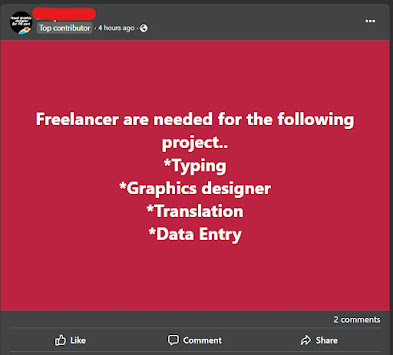To AI or Not to AI: The Ethics of Using ChatGPT to Give Feedback (and Why My Client's ChatGPT Trickery Rubbed Me the Wrong Way)
Yesterday, I landed a new gig writing articles for a client. Excitement buzzing in my veins, I dove straight into the work, eager to impress. After sharing my meticulously constructed article outline, I waited with bated breath for feedback. What I received instead was... well, a bit of a curveball. A wall of text that felt eerily familiar. Turns out, my client had simply pasted my outline into ChatGPT and hit "critique this for me and give me ways to improve it."
Now, I'm no Luddite. I've dabbled with AI tools myself, marveling at their ability to spit out ideas and automate mundane tasks. But this felt different. It felt like a cop-out, a shortcut that undermined the value of my work and the effort I'd put in. As the frustration simmered, a bigger question bubbled up: what are the ethics of using AI for feedback? Is it a helpful tool or a lazy way to avoid doing the real work of critical thinking and communication? And am I just being overly sensitive, or is there a legitimate reason to be peeved when AI replaces genuine human interaction?
Join me as I unpack this experience, explore the ethical implications of AI-generated feedback, and try to figure out if my client's ChatGPT trickery was a harmless time-saver or a major professional faux pas.
My ChatGPT Love Affair Turned Sour (And Why It Makes Me Wary Of AI-Generated Feedback
Let's be real: when ChatGPT 3.5 hit the scene back in November 2022, I was like a kid in a candy store. This shiny new AI toy promised to revolutionize the way we write, and I was all in. I used it for everything – from brainstorming blog topics to drafting those pesky "just checking in" emails, and even for penning the occasional (terrible) haiku. It was exhilarating, like having a super-smart writing buddy who never got tired or asked for a coffee break.
But as the initial novelty wore off, and even with the release of the supposedly even smarter ChatGPT 4.0, I started to notice a certain... hollowness. The output, while impressive, often felt a bit like a robot trying to mimic human conversation. It lacked that spark of originality, that subtle turn of phrase that makes writing truly captivating. I found myself using it less and less, relegating it to the back burner for only the most mundane of tasks.
Turns out, I'm not alone in my conflicted feelings. In the online communities where ChatGPT enthusiasts gather, a heated debate often erupts whenever someone answers a heartfelt question with a ChatGPT-generated response. One side of the argument sees it as the ultimate act of disrespect, a lazy and unethical way to avoid genuine human interaction. The other side shrugs it off, arguing that if the answer is helpful, who cares if it came from a human or a machine? It's a thorny issue, and one that's had me scratching my head more than once.
Personally, I tend to lean towards the "if it works, it works" camp. But I'd be lying if I said there wasn't a part of me that felt a pang of disappointment when a human connection is replaced with an AI-generated substitute. This feeling was only amplified by my own experience as a writer for hire. Before the ChatGPT craze, I had a thriving business, juggling multiple clients and barely keeping up with the demand. But then, the AI tidal wave hit. One by one, clients disappeared, their websites suddenly populated with the eerily familiar, slightly robotic prose that I knew all too well.
So, when my new client hit me with that ChatGPT-generated feedback, it was a blow. The impersonal nature of the critique, coupled with the potential for AI to devalue human expertise and reduce creativity to algorithms, left me feeling frustrated and questioning the ethics of this approach. This article is my way of grappling with these mixed feelings. Part of me wonders, "Does it really matter if the feedback is helpful, even if it came from a machine?" But another part can't shake the feeling of being disrespected, of having my work judged by an algorithm rather than another human mind.
The AI Feedback Dilemma: Benefits, Drawbacks, and Ethical Quandaries
It's hard to deny that AI tools like ChatGPT offer potential benefits when it comes to feedback. They're lightning-fast, churning out critiques in seconds, which saves time for everyone involved. Plus, they're often more affordable than hiring a human expert, opening up feedback opportunities to those on a budget. And let's not forget that AI algorithms can sometimes spot patterns or issues that a human might miss, adding a fresh perspective.
But, as with any shiny new tech, there are trade-offs. The biggest one for me is the loss of that genuine human touch. A critique from a real person shows they've invested time and energy into your work, offering tailored advice and encouragement. AI feedback, on the other hand, can feel like a cold, impersonal evaluation.
Then there's the sticky issue of honesty. Should people be told if their feedback came from a machine? Some might argue that it doesn't matter as long as the feedback is helpful. Others, like myself, might feel a little cheated if we found out we weren't getting a genuine human perspective.
And finally, there's the risk of AI getting it wrong. As smart as these algorithms are, they're still not perfect at understanding nuance, context, or the subjective nature of creative work. This can lead to feedback that's irrelevant, confusing, or just plain incorrect. Relying too much on AI might stifle creativity and hinder our growth as writers and thinkers.
The rise of AI in the feedback process raises some serious ethical questions. Can we find a way to use these tools without sacrificing human connection, expertise, and creativity? Maybe the answer lies in using AI as a supplement to human feedback, not a replacement. Or perhaps we need to develop ethical guidelines to ensure transparency and accountability when AI is involved.
Either way, it's clear that this is a conversation we need to have. The future of feedback might be AI-powered, but it shouldn't come at the cost of our humanity.
Caught Between a Client and a Hard Place: My AI Feedback Dilemma (and the Upwork Pressure Cooker)
So, as I sit here, gritting my teeth with the growing resentment and feeling a bit offended, I'm grappling with a dilemma. Do I confront my client about their ChatGPT shenanigans? It's tempting, but also potentially disastrous. This is a new business relationship, and I don't want to come across as accusatory or difficult. After all, I need to pay the bills, and offending a client is hardly a recipe for success.
The stakes are even higher on a platform like Upwork. A negative review or feedback could tarnish my pristine 5-star record and scare away potential clients. It's a classic catch-22: I want to stand up for my principles and advocate for the value of human feedback, but I also need to protect my reputation and livelihood.
It's a tricky situation. Part of me wants to send a carefully worded message, expressing my disappointment and suggesting a more collaborative approach to feedback. But another part of me worries that even a hint of criticism could backfire, leading to a premature end to the contract and a scathing review.
So, for now, I'm left stewing in my frustration, weighing the risks and rewards of confrontation. It's a reminder that the ethical dilemmas surrounding AI are not just abstract concepts, but real-world challenges that can impact our professional lives in very tangible ways.
So, Will I Stand My Ground or Succumb to the Robot Overlords?
As a writer, words are my tools, my passion, my livelihood. But the rise of AI-generated content has me questioning everything. Are we losing the essence of what makes writing meaningful? Are we trading human connection for automated efficiency?
My gut tells me to push back against the AI tide, to champion the irreplaceable value of human creativity and connection. But the reality of paying bills and maintaining a professional reputation is a constant tug-of-war. Sometimes, it feels like choosing between principles and practicality.
I'm determined to find a balance. I'll continue to use AI as a tool, but never as a crutch. I'll embrace the messy, beautiful process of human creativity, seeking out genuine feedback and striving to infuse my writing with the passion and personality that only a human can bring.
But if I'm being honest, fear lingers. The thought of submitting my article and receiving another robotic critique makes my stomach churn. Will I speak up? Or will I silently accept the AI-ification of my skill? Only time will tell.

.png)


Comments
Post a Comment